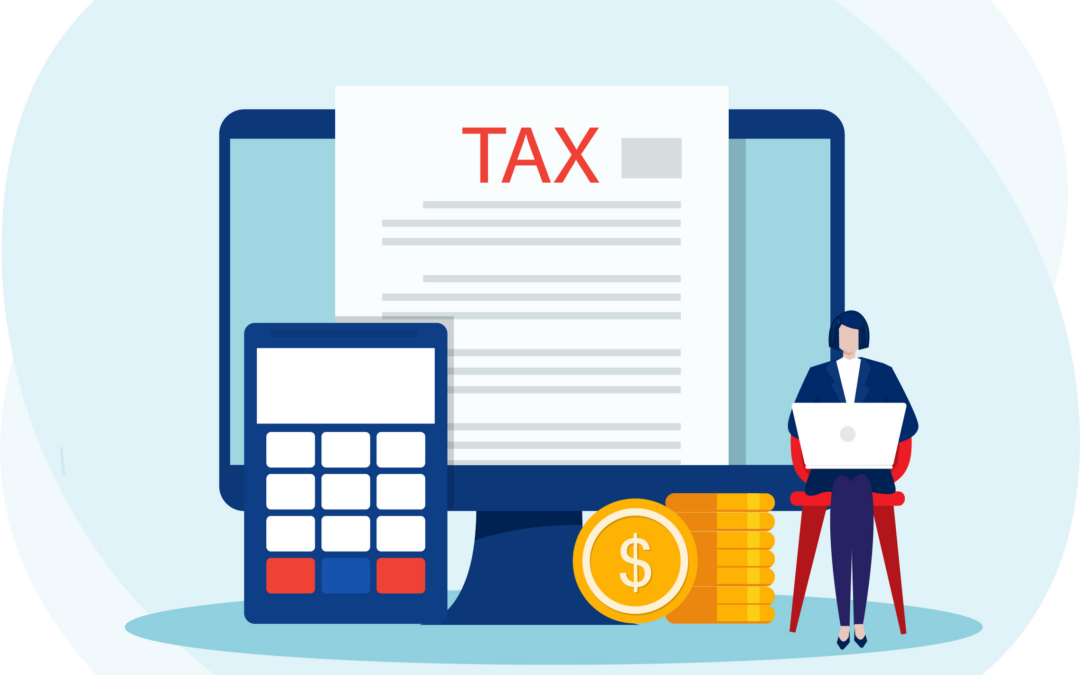What Is the Tax Underpayment Penalty
Understanding tax payments and the implications of underpayment is critical. The tax underpayment penalty is one such levy that taxpayers should be aware of. As explained, this penalty is imposed by the Internal Revenue Service (IRS) when taxpayers fail to complete their tax responsibilities within a specified time frame. A financial advisor with tax expertise can be a significant resource for tax planning and avoiding underpayment penalties.
The United States’ tax system is pay-as-you-go. Employees generally pay taxes through paycheck withholding. However, if tax withholding does not apply to you or will not fully cover your responsibilities, you may be required to pay estimated taxes quarterly. But what happens if you don’t pay your anticipated taxes on time or at all? Unfortunately, you may face a penalty for underpaying anticipated taxes.
When it comes to filing your taxes on time, things don’tsometimes go differently than they are. Even if you have the best intentions, you may incur an IRS tax penalty if you underestimate your quarterly payments, miss a tax filing date, or bounce a check to the IRS.
Mistakes happen, but it’s helpful to understand the fines charged by the IRS and how they’re computed. It’s also a good idea to understand your choices if you have been penalized by the IRS.
1. When the estimated tax penalty doesn’t apply
The good news is that if certain conditions are met, the IRS will not impose a penalty for underpayment of estimated taxes. You may be eligible for a penalty exemption if you had no responsibility the previous year, were a U.S. citizen or resident alien the whole year, and your preceding tax year encompassed 12 months.
You may also be eligible for the estimated tax safe harbor penalty exception. You may be eligible for a penalty waiver if you had good reasons for failing to pay, the underpayment was not due to willful disregard, and:
If you had an unexpected incident, retired at 62 or older, or became disabled during the past or current tax year, you may be exempt from filing taxes.
2. How to Avoid Underpayment Penalties
According to your financial status, you will be able to variety of tactics to lessen the potential danger of underpayment fines. If a taxpayer has significant non-wage income, such as from self-employment or investments, the IRS recommends that they make quarterly anticipated tax payments. Making these consistent tax payments throughout the year reduces the likelihood of receiving a huge, unexpected tax bill in April, which can cause financial distress.
There are several simple strategies to avoid the tax underpayment penalty. The IRS offers a few safe harbors to taxpayers:
– Pay the full amount owed for the preceding tax year.
Divide your previous year’s tax liability by four. Make sure that any tax withholdings from your paycheck, along with your projected taxes, equals that amount. If your adjusted gross income exceeds $150,000 last year, you must pay 110% of your previous year’s tax liability. Estimated tax payments are due on the following dates April 15, June 15, September 15, and January 15.
– If You Owe Less Than $1,000
According to the IRS, taxpayers who owe less than $1,000 in taxes after deducting their withholding and refundable credits can escape underpayment penalties. This can relieve those with a minor debt due at tax time.
– Pay 90% of the current year’s tax liability.
If your withholdings and expected tax payments exceed 90% of your total tax due for the year, you will not be subject to the tax underpayment penalty if you make all your estimated tax payments on time.
3. Special Considerations
You may be eligible for a reduced penalty if you do not qualify for any of the underpayment penalty exceptions. For example, changing one’s tax filing status from single to married filing jointly may result in a lower penalty due to the bigger standard deduction.
A reduction in taxes may also be provided to taxpayers who earn a significant amount of their income late in the calendar year. One example is an investment asset sold in December, producing a considerable capital gains tax.
4. Takeaway
Understanding tax underpayment penalties and their calculations is important in managing one’s financial commitments. The IRS imposes these penalties on taxpayers who fail to complete their tax obligations in a given year and apply to all income levels.
The penalty is determined using the federal short-term rate + 3%, compounded daily on the amount owed. This penalty might accrue interest over time, compounding the financial hardship. However, this can be minimized through methods such as making timely payments, raising withholdings, and paying estimated taxes.


Recent Comments